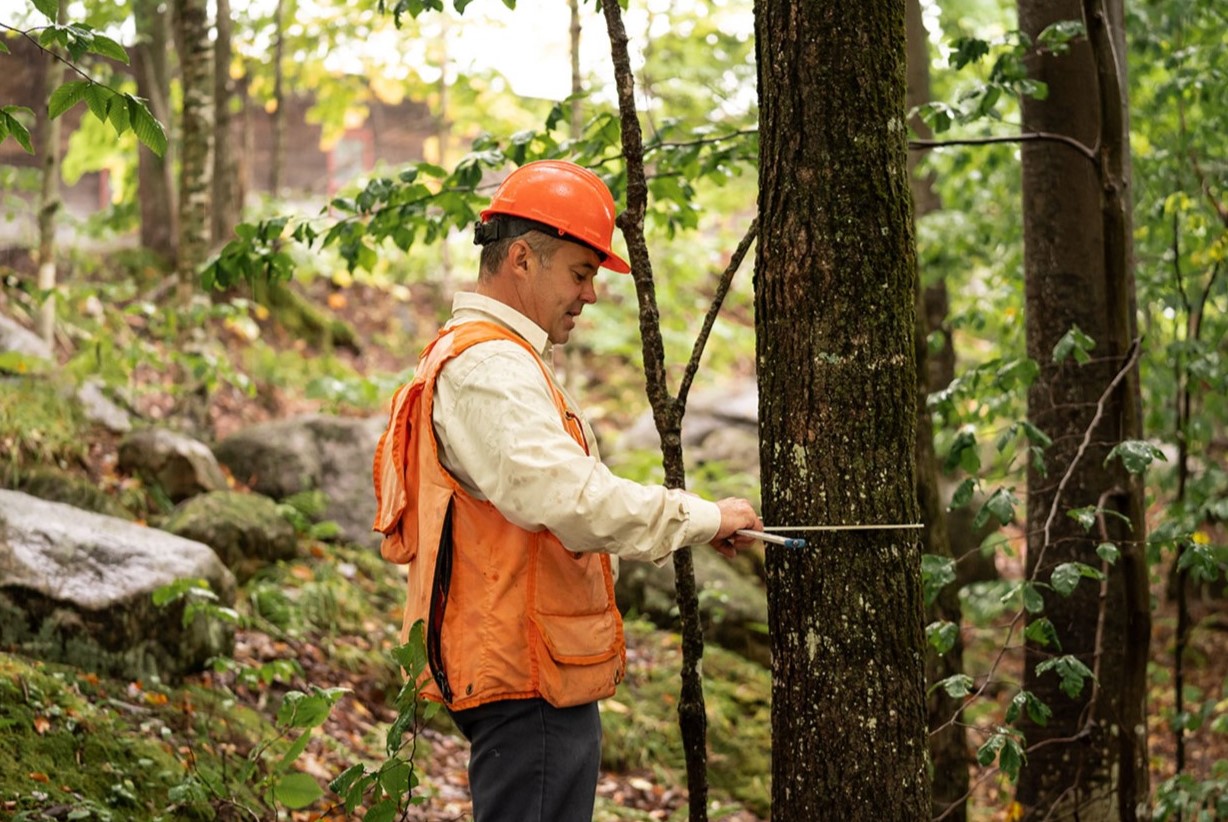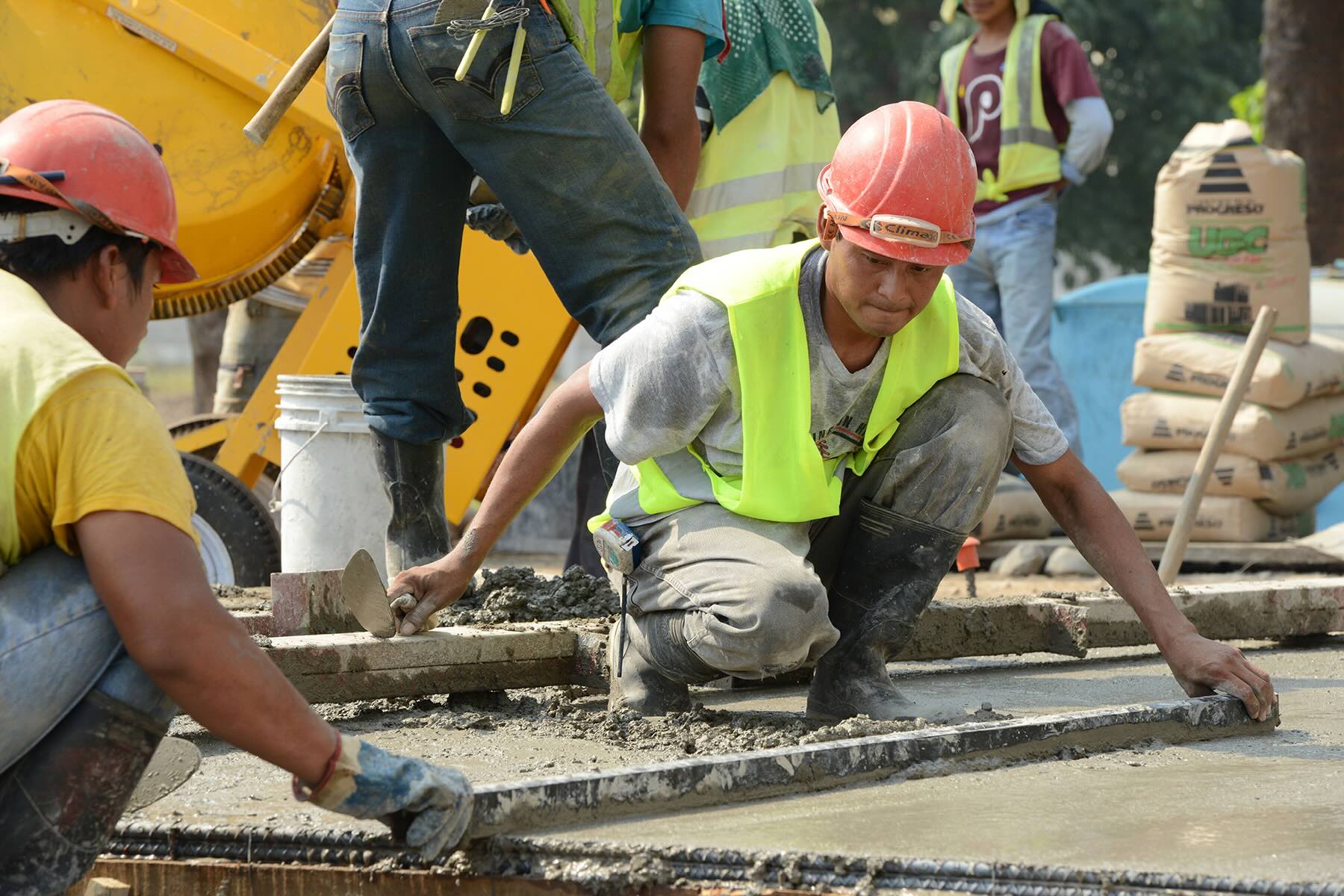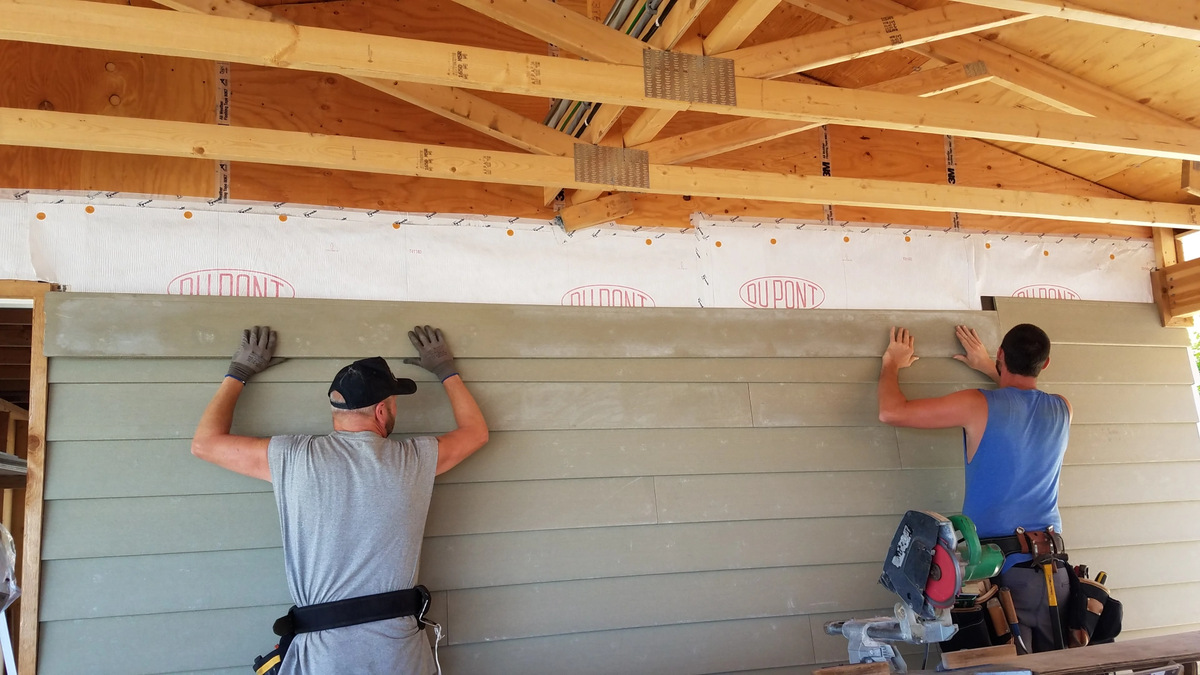Home>diy>Building & Construction>How To Get A Job In Construction


Building & Construction
How To Get A Job In Construction
Modified: January 6, 2024
Learn how to secure a job in the competitive field of building construction. Discover essential tips and resources to enhance your prospects and stand out from the crowd.
(Many of the links in this article redirect to a specific reviewed product. Your purchase of these products through affiliate links helps to generate commission for Storables.com, at no extra cost. Learn more)
Introduction
Entering the construction industry can be a rewarding and fulfilling career choice. With numerous job opportunities and the potential for growth, it’s no wonder that many individuals are drawn to this field. However, getting a job in construction requires dedication, knowledge, and a strategic approach to stand out from the competition.
In this article, we will guide you on how to get a job in construction, sharing valuable insights and tips to help you navigate the industry and increase your chances of securing a position. Whether you are an experienced professional or just starting your career, these steps will provide you with a solid foundation for success.
Before diving into the specifics, it’s important to recognize the diverse nature of the construction industry. There are various sectors within construction, including residential, commercial, industrial, and civil engineering. Each sector has its own unique job roles, requirements, and skill sets. It’s essential to research and identify the specific area of construction that aligns with your interests and goals.
Throughout this article, we will provide valuable information applicable to all areas of construction, while also acknowledging the nuances of different sectors. By following these steps, you will be well-equipped to start your journey towards a successful career in the construction industry.
Key Takeaways:
- Research, education, and networking are crucial for success in the construction industry. Stay informed about industry trends, pursue relevant education, and build strong connections to stand out in the job market.
- Tailoring your resume, preparing for interviews, and following up effectively are essential steps in securing a construction job. Showcase your skills, demonstrate enthusiasm, and maintain professionalism throughout the process.
Read more: How To Price A Job In Construction
Research the Construction Industry
Before embarking on a job search in the construction industry, it’s crucial to have a solid understanding of the field. Take the time to research and familiarize yourself with the industry as a whole, including the latest trends, regulations, and advancements. This knowledge will not only help you stand out during interviews but also demonstrate your genuine interest in the industry.
Start by exploring different sectors within construction, such as residential, commercial, industrial, and civil engineering. Each sector has its own unique projects, requirements, and job opportunities. Consider which area aligns best with your interests and skills.
Next, delve into the current state of the construction industry. Stay up-to-date with industry news, research market trends, and understand the factors influencing the construction market, such as economic conditions and government policies. This information will give you valuable insights into the industry’s growth potential and help you position yourself effectively during interviews.
Additionally, research the skills and qualifications that are in demand within the construction industry. Look for common job requirements and educational backgrounds sought by employers. This will help you identify any gaps in your knowledge or experience and allow you to proactively address them.
Furthermore, seek out professional organizations and associations related to the construction industry. These organizations often provide resources, networking opportunities, and industry-specific training programs. Joining these organizations can help you stay informed about industry events, connect with professionals, and access valuable resources to enhance your career prospects.
Finally, consider reaching out to individuals already working in the construction industry. Connect with professionals through networking events, social media platforms, or online forums. Engaging with industry experts will provide you with firsthand insights into the field, uncover hidden job opportunities, and potentially lead to valuable mentorship or internships.
Remember, conducting thorough research on the construction industry is an essential step towards securing a job in this field. By demonstrating your knowledge and passion for the industry, you will stand out to potential employers and increase your chances of success.
Gain Relevant Education and Training
In the construction industry, having the right education and training is crucial to securing a job and advancing your career. While some positions may only require a high school diploma or equivalent, many employers prefer candidates with specialized education and training.
Start by researching educational programs and institutions that offer courses related to construction. Look for programs that provide a comprehensive understanding of construction principles, techniques, and industry standards. Consider enrolling in certificate programs, associate’s degrees, or bachelor’s degrees in fields such as construction management, civil engineering, architecture, or related disciplines.
In addition to formal education, consider pursuing specialized training and certifications that are relevant to your desired role in construction. These certifications can enhance your skills, give you a competitive edge, and showcase your dedication to professional growth. Examples of industry-recognized certifications include the Construction Management Association of America (CMAA) Certified Construction Manager (CCM) and the Occupational Safety and Health Administration (OSHA) construction safety certifications.
Furthermore, gaining practical experience through internships, apprenticeships, or entry-level positions is invaluable in the construction industry. Seek opportunities to work under experienced professionals and learn about different aspects of construction firsthand. This hands-on experience will not only enhance your technical skills but also provide you with insights into the industry’s day-to-day operations.
Consider joining professional organizations and associations related to the construction industry. These organizations often offer training programs, workshops, and networking events that can help you expand your knowledge and build valuable connections. Additionally, they may provide resources for finding internships or job opportunities within the industry.
Lastly, continue to stay updated with the latest technologies and advancements in the construction industry. Attend industry conferences, workshops, and seminars to learn about emerging trends and practices. Being knowledgeable about new tools, software, and sustainable construction practices can make you a valuable asset to potential employers.
Remember, gaining relevant education and training is an ongoing process in the construction industry. Continuously seek opportunities to enhance your skills, stay updated with industry changes, and adapt to emerging trends. By investing in your education and training, you will position yourself as a qualified and competitive candidate in the job market.
Build a Strong Construction Resume
In the competitive job market of the construction industry, a strong resume is essential for catching the attention of potential employers. Your resume should highlight your relevant skills, experience, and education, showcasing why you are the perfect fit for the job. Here are some tips to help you build a strong construction resume:
- Start with a compelling summary: Begin your resume with a concise summary that highlights your skills and experience in the construction industry. Use keywords relevant to the position you are applying for and emphasize your unique selling points.
- Showcase your relevant experience: List your work experience in reverse chronological order, starting with the most recent job. Include the company name, job title, dates of employment, and a brief description of your responsibilities and accomplishments. Focus on highlighting your experience in construction-related tasks, such as project management, site supervision, and specific skills like carpentry or electrical work.
- Emphasize your technical skills: In the construction industry, technical skills play a crucial role. Make sure to list relevant technical skills such as proficiency in construction software, knowledge of building codes and regulations, ability to read blueprints, and proficiency in using construction tools and equipment.
- Showcase your certifications and training: Include any certifications or training programs you have completed that are relevant to the construction industry. This could include safety certifications, project management courses, or any specialized training related to your desired position.
- Highlight your accomplishments: Don’t just list your job responsibilities; highlight specific accomplishments or projects you have successfully completed. Quantify your achievements whenever possible to demonstrate your impact, such as the number of projects managed, budgets exceeded, or timeframes met.
- Include relevant education: List your educational background, including degrees, certifications, and any specialized coursework related to construction or engineering. If you are a recent graduate with limited work experience, emphasize your education and any relevant projects or internships you have completed.
- Focus on soft skills: Alongside technical skills, emphasize your soft skills such as communication, teamwork, problem-solving, and leadership abilities. These skills are highly valued in the construction industry and can set you apart from other applicants.
- Ensure clarity and readability: Format your resume using clear headings, bullet points, and a professional font. Use white space effectively to improve readability and make it easier for hiring managers to scan through your information.
- Proofread and edit: Before submitting your resume, check for any spelling or grammatical errors. Ask a trusted friend or mentor to review your resume for clarity and consistency.
Remember, your construction resume is your first impression to potential employers. Take the time to tailor it to each job application and highlight your most relevant skills and experiences. A well-crafted resume can significantly increase your chances of landing a job in the construction industry.
Network within the Construction Industry
In the construction industry, networking plays a crucial role in finding job opportunities and advancing your career. Building connections with industry professionals can lead to valuable referrals, job leads, and insights into the industry. Here are some tips to help you effectively network within the construction industry:
- Attend industry events: Look for conferences, trade shows, and workshops specifically tailored to the construction industry. These events provide excellent opportunities to meet professionals in the field, learn about the latest trends, and make valuable connections. Engage in conversations, ask questions, and exchange contact information with fellow attendees.
- Join professional associations: Research and join professional associations in the construction industry. These organizations provide networking events, seminars, and forums where you can meet and connect with other industry professionals. Take an active role in these associations by volunteering for committees or attending leadership events.
- Use social media: Leverage social media platforms like LinkedIn to connect with professionals in the construction industry. Build a compelling LinkedIn profile that highlights your skills, experience, and aspirations. Engage in relevant groups and discussions, share industry-related content, and reach out to individuals for informational interviews.
- Attend local construction industry meetings: Research local construction industry organizations or meetups and attend their meetings. These gatherings provide opportunities to network with professionals working in your area. Be proactive in introducing yourself, exchanging business cards, and expressing your interest in the industry.
- Participate in online forums and communities: Contribute to online forums and communities dedicated to construction-related topics. Share your expertise, ask questions, and connect with fellow professionals. These platforms can be a valuable source of information, as well as a way to establish your credibility within the industry.
- Reach out to connections: Use your existing network to connect with professionals in the construction industry. Reach out to former colleagues, friends, or mentors who may have contacts or insights in the field. Ask for introductions and recommendations to expand your network further.
- Attend career fairs: Look for construction-specific job fairs in your area and attend them. These events provide opportunities to connect directly with construction companies and hiring managers. Be prepared with copies of your resume and a brief elevator pitch about your skills and experience.
- Follow up and maintain relationships: After meeting someone in the industry, always follow up with a personalized message expressing your appreciation for the connection. Nurture your relationships by staying in touch, sharing industry news or resources, and offering your assistance when needed. Building genuine relationships is key to long-term networking success.
Remember, networking is an ongoing process in the construction industry. Continuously build and maintain relationships to expand your network. Be genuine, enthusiastic, and proactive in seeking out opportunities to connect with professionals. Networking can open doors to new job opportunities, collaborations, and valuable industry insights that can propel your career forward.
Networking is key in the construction industry. Attend industry events, join professional organizations, and connect with people in the field to increase your chances of finding job opportunities.
Read more: What Is The Hardest Construction Job
Search for Construction Job Opportunities
Finding construction job opportunities requires a proactive approach and utilizing various resources. Here are some effective strategies to help you search for construction job opportunities:
- Online Job Boards: Utilize popular job search websites and specialized construction job boards to browse and apply for open positions. Popular job boards such as Indeed, LinkedIn, and Glassdoor often have a wide range of construction-related job postings. Tailor your search using keywords specific to your desired role or specialization.
- Company Websites: Visit the websites of construction companies you are interested in working for. Many companies list their job openings on their websites, allowing you to apply directly. Follow their application instructions and submit a tailored resume and cover letter that demonstrate your suitability for the specific role.
- Networking: Leverage your professional network to uncover hidden job opportunities. Inform colleagues, friends, and mentors in the construction industry about your job search and ask if they know of any openings. Additionally, connect with construction industry professionals on platforms like LinkedIn and inform them of your job search intentions.
- Industry Events: Attend construction industry events, trade shows, and career fairs. These gatherings often bring together construction companies, recruiters, and potential job seekers. Take advantage of the opportunity to network with industry professionals, discover job openings, and submit your resume directly to recruiters.
- Construction Associations: Join construction associations and organizations that offer job boards or career resources. These associations often have job listings exclusively for their members. Stay updated on the association’s website or email newsletters for the latest job opportunities.
- Local Trade Unions: If you are interested in manual labor or trade positions, consider reaching out to local trade unions. Trade unions often have connections with construction companies and can assist in finding available positions or apprenticeship opportunities.
- Contracting and Subcontracting: Explore opportunities with contracting and subcontracting firms involved in construction projects. These firms often have ongoing hiring needs for various roles, from project management to on-site labor. Keep an eye on their websites or reach out to inquire about job openings.
- Government Job Listings: Check government job listings, as government entities may have construction-related job openings for infrastructure projects or public construction works. Visit government websites or specialized job portals for such listings.
- Temporary and Staffing Agencies: Consider registering with temporary staffing agencies that specialize in construction. These agencies may have short-term or long-term assignments available, providing you with valuable experience and potential avenues for permanent job placement.
Remember to tailor your applications to each job opportunity. Research the company and role, and highlight your relevant skills and experiences in your resume and cover letter. Additionally, maintain a proactive and organized job search approach by setting up job alerts, tracking your applications, and following up with employers. Persistence and perseverance will increase your chances of uncovering rewarding construction job opportunities.
Prepare for Construction Job Interviews
Preparing for construction job interviews is essential to increase your chances of success and stand out from other candidates. Here are some tips to help you effectively prepare:
- Research the Company: Conduct thorough research on the company you are interviewing with. Familiarize yourself with their projects, clients, values, and mission. This knowledge will enable you to tailor your answers and demonstrate your interest in the company during the interview.
- Review the Job Description: Understand the requirements and responsibilities outlined in the job description. Identify key skills, qualifications, and experience that the employer is seeking. Prepare specific examples from your past experiences that highlight your suitability for the role.
- Prepare Responses to Common Interview Questions: Anticipate common interview questions and prepare well-thought-out responses. Practice answering questions about your experience, problem-solving abilities, leadership skills, teamwork, and construction knowledge. Focus on providing specific examples that demonstrate your expertise.
- Showcase Your Technical Skills: Construction interviews often assess technical knowledge and skills. Prepare to discuss your proficiency in construction techniques, reading blueprints, understanding building codes and regulations, and utilizing construction software. Be ready to provide examples of how you have applied these skills in your previous roles.
- Highlight Safety Knowledge: Emphasize your knowledge of construction safety protocols and regulations. Showcase your commitment to maintaining a safe work environment and your ability to effectively communicate and enforce safety practices on construction sites.
- Prepare Questions to Ask: Prepare thoughtful questions to ask the interviewer. Inquire about the company’s upcoming projects, team dynamics, career development opportunities, or any specific initiatives or challenges they are currently facing. This shows your interest in the role and proactive attitude.
- Dress Professionally: Dress in professional attire for the interview. Choose clean and appropriate clothing that reflects the company’s culture. Pay attention to grooming and ensure you present yourself confidently and professionally.
- Bring Relevant Documentation: Bring copies of your resume, certifications, and any other relevant documentation that showcases your skills and qualifications. This demonstrates your preparedness and attention to detail.
- Practice Mock Interviews: Conduct mock interviews with a friend or mentor. Practice answering common interview questions and receive feedback on your responses, body language, and overall presentation. This will help you feel more confident and polished during the actual interview.
- Follow-Up After the Interview: Send a personalized thank-you email or letter to the interviewer(s) within 24 hours of the interview. Express your gratitude for the opportunity and reaffirm your interest in the position. This thoughtful gesture leaves a positive impression and shows your professionalism.
Remember, preparation is key to a successful construction job interview. By researching the company, practicing your responses, and showcasing your technical skills and qualifications, you will increase your chances of impressing the interviewer and securing the job opportunity.
Highlight Key Skills and Experience during Job Interviews
During a construction job interview, it’s crucial to effectively highlight your key skills and relevant experience to demonstrate your suitability for the position. Here are some tips to help you showcase your skills and experience during job interviews:
- Prepare examples: Prior to the interview, review the job requirements and identify specific skills or experiences that the employer is seeking. Prepare examples from your past work experience that demonstrate these skills in action. This could include managing projects, collaborating with teams, problem-solving, utilizing technical tools, or coordinating construction activities.
- Quantify your accomplishments: Whenever possible, quantify your achievements by providing specific details. For example, mention the number of projects you completed, the budget you managed, or the timeline you successfully met. This helps to illustrate your impact and the value you can bring to the company.
- Highlight safety knowledge: Emphasize your knowledge of construction safety protocols and regulations. Mention any relevant safety certifications you possess and provide examples of how you have prioritized safety on construction sites. This showcases your dedication to maintaining a safe work environment.
- Showcase your problem-solving abilities: Construction projects often encounter challenges and obstacles. Highlight your problem-solving skills by sharing examples of how you have successfully resolved issues in past projects. Discuss your ability to think critically, make informed decisions, and find creative solutions that meet project objectives.
- Discuss teamwork and collaboration: Construction requires effective teamwork and collaboration among different stakeholders. Highlight your ability to work well with others by discussing successful collaborations and projects where you collaborated with diverse teams, contractors, and subcontractors. Highlight your communication skills and how you contributed to a positive team dynamic.
- Demonstrate adaptability and flexibility: Construction projects often require adaptation to changing conditions or unexpected circumstances. Discuss instances where you displayed adaptability and flexibility in adjusting to project changes, reallocating resources, or finding innovative solutions to overcome challenges.
- Show your attention to detail: Attention to detail is crucial in the construction industry to ensure quality and accuracy. Share examples of how you have meticulously reviewed plans, specifications, and documentation to identify and rectify potential issues before they become problems.
- Discuss your construction-specific technical skills: Depending on the role, highlight your technical skills specific to construction. For example, mention your proficiency in construction software, blueprint reading, understanding building codes and regulations, or operating specialized equipment. Illustrate how you have used these skills to successfully complete projects.
- Draw on your relevant experience: Relate your previous experience to the specific job requirements. Describe how your past roles and projects have prepared you for the position you are interviewing for. Draw parallels between your previous accomplishments and the challenges and responsibilities of the new role.
- Be confident and enthusiastic: When discussing your skills and experience, exude confidence and enthusiasm. Showcase your passion for construction and your eagerness to contribute to the company’s success. This positive energy can leave a lasting impression on the interviewer.
Remember to tailor your examples and responses to align with the company’s values and the specific job requirements. By effectively highlighting your skills and relevant experience, you can demonstrate your capabilities and increase your chances of securing the construction job opportunity.
Follow Up After Job Interviews
Following up after a job interview is an essential step that demonstrates your professionalism, interest, and enthusiasm for the position. It also provides an opportunity to reaffirm your qualifications and leave a positive impression on the interviewer. Here are some tips on how to effectively follow up after a construction job interview:
- Send a personalized thank-you note: Within 24 hours of the interview, send a personalized thank-you email or letter to each person you interviewed with. Express gratitude for the opportunity to interview and reiterate your interest in the position. Personalize the message by mentioning specific points discussed during the interview.
- Highlight your strengths: In your thank-you note, briefly reemphasize your key skills, experiences, and qualifications that make you a strong fit for the role. This serves as a reminder to the interviewer of your suitability for the position.
- Mention any key points you may have missed: If you feel that there were any aspects of your skills or experiences that you did not fully cover during the interview, take the opportunity in your follow-up to address them. Briefly mention these points and provide additional information to strengthen your candidacy.
- Reiterate your interest: Clearly express your continued interest in the position and the company. Mention specific reasons why you are excited about the opportunity and how you believe your skills and experiences align with the company’s goals and values.
- Stay professional and concise: Keep your follow-up message professional and concise. Avoid being overly casual or too lengthy in your communication. Ensure that your message is error-free by proofreading it carefully before sending.
- Use multiple channels if appropriate: In addition to sending a thank-you email or letter, if you have connected with the interviewer or the company through social media platforms such as LinkedIn, consider sending a personalized thank-you message on that platform as well. However, avoid being intrusive and respect the interviewer’s preferred method of communication.
- Follow up on timelines: If the interviewer gave an indication of the timeline for making a decision, make a note of it. If that timeline has passed, you may send a polite follow-up email inquiring about the status of the hiring process.
- Continue job search: While following up is important, it’s crucial to continue your job search and explore other opportunities. Keep applying to other positions and attending interviews until you have officially accepted an offer.
- Maintain professionalism: Regardless of the outcome, maintain a professional approach and stay courteous in all your interactions with the company. This will leave a positive impression and keep doors open for future opportunities.
Remember, following up after a job interview shows your enthusiasm and commitment to the position. A well-crafted and timely follow-up can leave a lasting positive impression and potentially tip the scales in your favor. However, be mindful of not being overly pushy or impatient during the follow-up process. Strike a balance between showing your interest and respecting the hiring process.
Read more: How To Get A CAD Job
Final Thoughts
Securing a job in the construction industry requires a combination of knowledge, skills, and strategic actions. By following the steps outlined in this article, you can increase your chances of standing out among the competition and landing a rewarding position in the construction field.
Remember to conduct thorough research on the construction industry, gaining an understanding of its different sectors, trends, and requirements. By staying informed about the latest advancements, regulations, and market conditions, you can position yourself as a knowledgeable candidate during interviews.
Investing in relevant education and training is crucial for success in the construction industry. Pursue certifications, degrees, and on-the-job experience to enhance your skills and demonstrate your dedication to professional growth. Stay current with industry best practices and embrace new technologies that can give you a competitive edge.
Building a strong construction resume is essential for attracting the attention of potential employers. Tailor your resume to highlight your relevant skills, experiences, and accomplishments. Quantify your achievements and showcase your technical and soft skills to differentiate yourself from other candidates.
Networking within the construction industry is a powerful tool. Attend industry events, join professional associations, and connect with industry professionals online to expand your network. Building genuine relationships can lead to mentorship, referrals, and hidden job opportunities.
When searching for construction job opportunities, utilize online job boards, company websites, networking, and industry events. Be proactive in identifying and applying for positions that align with your skills and interests. Tailor your applications to each job and demonstrate your enthusiasm for the company.
Preparing for construction job interviews is crucial to presenting yourself confidently and professionally. Research the company, practice common interview questions, and highlight your key skills and experiences. Follow up with a personalized thank-you note to leave a positive impression and reiterate your interest in the position.
Finally, remember that finding a job in the construction industry may take time and persistence. Stay motivated, continue to develop your skills and industry knowledge, and remain open to new opportunities. With dedication and perseverance, you can achieve a successful career in the construction industry.
Frequently Asked Questions about How To Get A Job In Construction
Was this page helpful?
At Storables.com, we guarantee accurate and reliable information. Our content, validated by Expert Board Contributors, is crafted following stringent Editorial Policies. We're committed to providing you with well-researched, expert-backed insights for all your informational needs.














0 thoughts on “How To Get A Job In Construction”